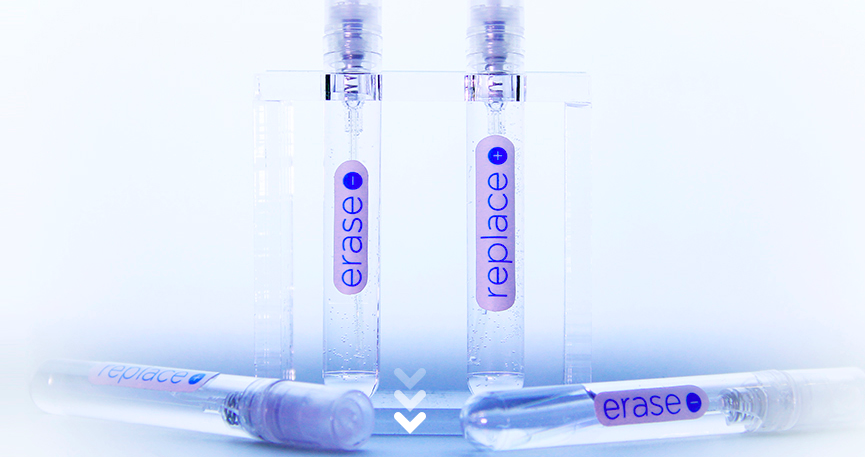On May 1st, the White House released its Report on Big Data and Privacy, and artist Heather Dewey-Hagborg announced a new project called Invisible. What do they have in common? Each expresses concerns about genetic surveillance. That surveillance is a problem, and we should be doing something about it.
Sure, we know that the use of email, internet browsers, and cell phones might subject us to tracking by eager marketers as well the government. Maybe it’s Target looking to customize the coupons it sends to you, or the NSA collecting your data as part of a mass surveillance program.
The funny thing is that the coffee cup you left at work this morning has an equally tantalizing amount of personal information, available for anyone to collect. As the White House report notes, the potential for “opportunistically collected” DNA samples poses threats to our privacy. The Invisible project offers a countermeasure in the form of two spray bottles: one that erases most of the DNA you leave behind everywhere and another that masks the remainder.
A number of police departments around the country have gotten wise to the idea that genetic information like this is easy to obtain. Cigarette butts, used coffee cops, and soda straws have all yielded incriminating evidence. The Fourth Amendment provides protection for some personal information, but not what’s considered “garbage.” That’s exactly how most courts have characterized genetic evidence sought by the police but left behind by suspects.
But if the alarm about digital snooping by marketers and the police has shown us anything, it’s that you don’t have to be a criminal to be worried about who may be watching you. Taking active countermeasures against surveillance can just mean you care about your privacy.
Protecting your privacy isn’t yet as easy as pulling the trigger of a spray bottle. Erasing digital trails is costly and time-consuming enough that journalist Julia Angwin wonders if it is a “luxury good.” Indeed if you try too hard to avoid being tracked online, you might be flagged as criminally suspicious. Now, though, revulsion and action against digital surveillance is a part of legitimate public discussion and the subject of many news stories.
We haven’t gotten this far with genetic surveillance. Few people are taking up the cause of protecting our DNA from snooping of all kinds. Yet the threats to privacy are real, and not just from the police. Easily obtained DNA could be of value to many: marketers, litigants in a paternity dispute, even someone intent on discovering something private from a say, Presidential candidate.
What do we need? Not just a digital “Do Not Track,” but a genetic one as well.
Elizabeth E. Joh is a professor of criminal law and procedure at the University of California, Davis School of Law. She is on the Life of the Law advisory panel and has written widely on surveillance technologies and DNA evidence.
Email: eejoh@ucdavis.edu, Twitter: @elizabeth_joh









